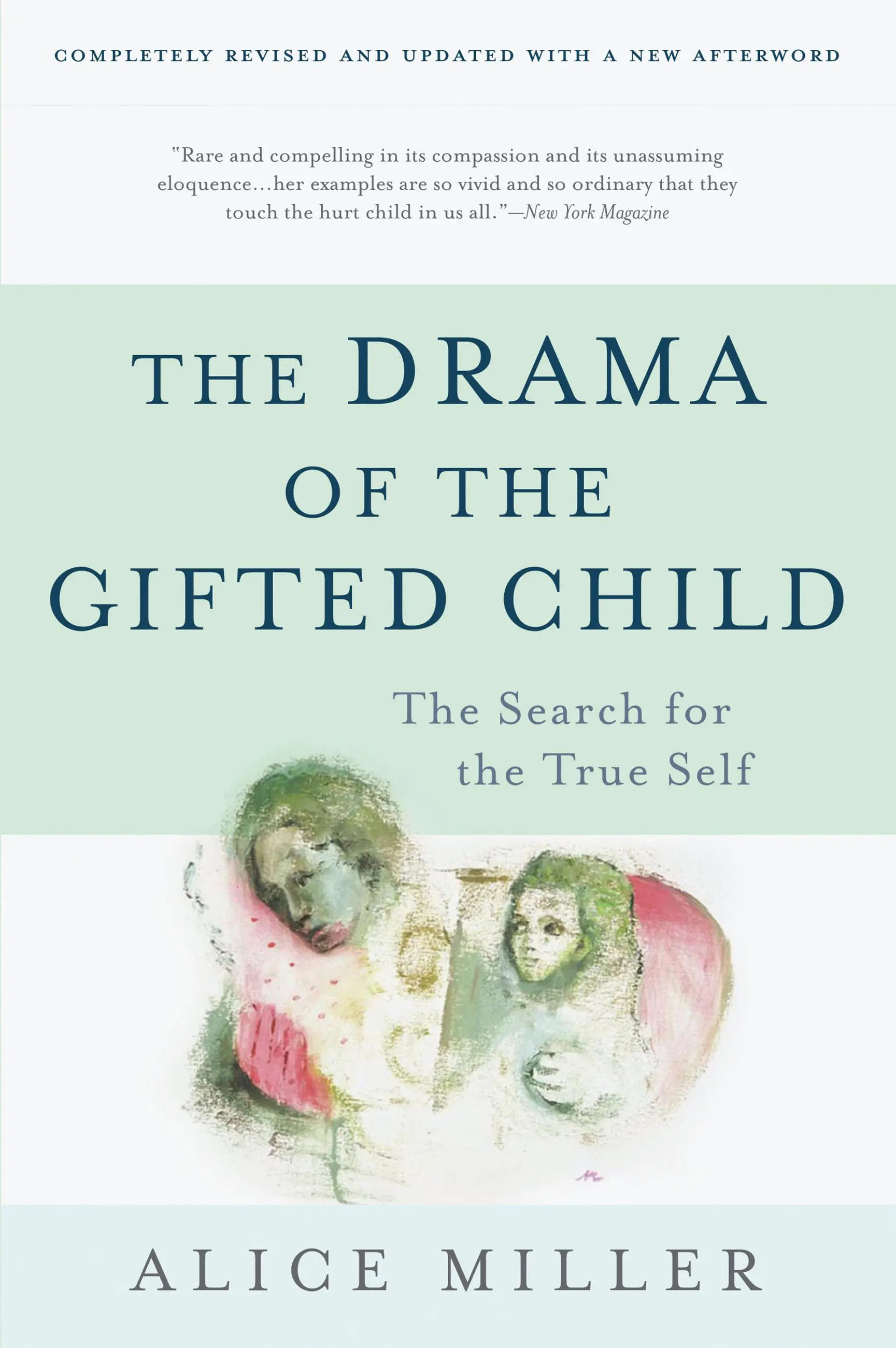The Tragic Genius of the Gifted Child: A Deep Dive into Alice Miller’s Masterpiece
Breaking Free from the Chains of Generational Trauma
Dear Permission to be Powerful Reader,
The first tragedy of the gifted child is that no one sees them for who they are.
Instead, they are seen as reflections—mirrors of their parents' unmet needs, unfulfilled dreams, and hidden insecurities.
And so, in the quiet corridors of childhood, where love should be unconditional, a cruel exchange is made: be what they want, or risk losing love altogether.
Alice Miller’s The Drama of the Gifted Child is not merely a book—it is a revelation, an emotional earthquake that shatters the illusion of the ‘happy childhood’ many of us have been conditioned to protect.
With unflinching honesty, Miller peels away the polite, respectable veneer of family life to expose the deep wounds left by emotionally starved parents, the unspoken rules of conditional love, and the exiled, hidden self of the child who learned that being real was not safe.
The Wound That Never Heals
Imagine a child, bright and intuitive, who senses the emotional temperature of a room before even stepping inside.
This child doesn’t just want approval; they need it—to survive.
If love is given only when they excel, they will learn to excel at the cost of their authenticity.
If love is given only when they are pleasing, they will learn to betray their emotions to maintain the peace.
Over time, these children become masters of adaptation, molding themselves into whatever version of ‘perfection’ keeps them safest. But deep inside, something vital is lost: their true self.
Miller’s insight is devastating: many so-called ‘successful’ adults are in fact carrying an unbearable emptiness—the residue of childhoods spent performing, not being.
Depression, grandiosity, self-doubt, compulsive achievement—all are symptoms of a profound disconnection from the real self.
The Hidden Prison
What makes this book so haunting is Miller’s argument that most people never escape this invisible prison.
Instead, they become their parents—perpetuating the very cycle of neglect, projection, and emotional blindness that wounded them.
The mother who needed her child to be perfect so she could feel worthy of love will, without awareness, demand the same of her own children.
The father who was humiliated into obedience will, unconsciously, pass that same contempt down.
And the pattern continues, generation after generation.
Miller describes this cycle with an almost surgical precision: "We cannot, simply by an act of will, free ourselves from repeating the patterns of our parents' behavior. We become free only when we can fully feel and acknowledge the suffering they inflicted on us."
This is the razor’s edge of the book.
Because it is not enough to know we were wounded—we must feel it. And feeling it means confronting unbearable truths: that the people who raised us—who may have loved us—also hurt us, perhaps deeply. That the parents we protected in our minds may not have been the benevolent figures we convinced ourselves they were. That our childhood may not have been ‘happy’ after all.
And this is where most people turn away. Because grief is a doorway, but it is also a grave.
The Cost of Repression
Many people avoid this grief, preferring to keep the past locked away. But Miller warns: what is repressed is never truly forgotten. It seeps into adulthood, into relationships, into self-worth. The child who had to earn love will become the adult who never feels ‘good enough.’ The child who repressed anger will become the adult who struggles with depression, anxiety, or unexplained emptiness.
Perhaps the most harrowing example Miller gives is that of adults who, never having confronted their own childhood pain, project it onto their children. This is why abuse cycles repeat. Why narcissistic parents produce emotionally starved offspring. Why parents who themselves were never seen force their children into roles that serve their emotional needs instead of nurturing their children’s own identity.
The Illusion of Healing
Miller is merciless in her analysis of so-called ‘successful’ survivors. The high-achieving lawyer, the celebrated artist, the brilliant doctor—these are often children who learned that achievement could replace love. But beneath their polished exteriors is a void, a gnawing hunger that no external validation can ever fill. They have escaped nothing. They have simply built a grander cage.
And yet, Miller does not leave us without hope.
The way out, she argues, is through mourning. True mourning—not the intellectual recognition of suffering, but the visceral grieving of the self that was lost. Only by acknowledging the depth of the betrayal—without excuses, without justification, without ‘they did their best’—can the wound begin to close.
It is an arduous process. It means surrendering illusions, confronting suppressed rage, and allowing oneself to grieve the childhood that was stolen. But on the other side of this grief is something miraculous: the rediscovery of the true self.
The Redemption of Feeling
What would it mean to live a life no longer dictated by old wounds?
To stop performing and start existing?
To no longer seek approval, but rather, to own one’s authenticity?
Miller’s answer is not easy, but it is profound: a return to feeling. The ability to once again experience joy, sadness, anger, and love without repression, without shame, without the fear of abandonment. A life lived in full color, not in the muted grays of the adapted self.
For many, this book will be painful. It will feel like betrayal. It will shatter cherished illusions about parents, about childhood, about the very structure of identity itself.
But for those who are willing to walk through the fire, The Drama of the Gifted Child is more than a book—it is a doorway back to the self.
A self that was waiting.
A self that has always been there.
A self that, at long last, is ready to be seen.
Until next time,
Anton
Dancer, Writer, Buddhist.




This feels familiar to me in the sense of being viewed as a gifted child. My parents were very supportive of me in my musical (and non-musical) endeavors. But some of us peak early, and then have a hard time figuring out who we really are and what our purpose on earth is, after we grow up and become just one of the many and not particularly special or “successful.”
I will check out this book. Thanks for the thoughtful review. (And now I’m a subscriber)